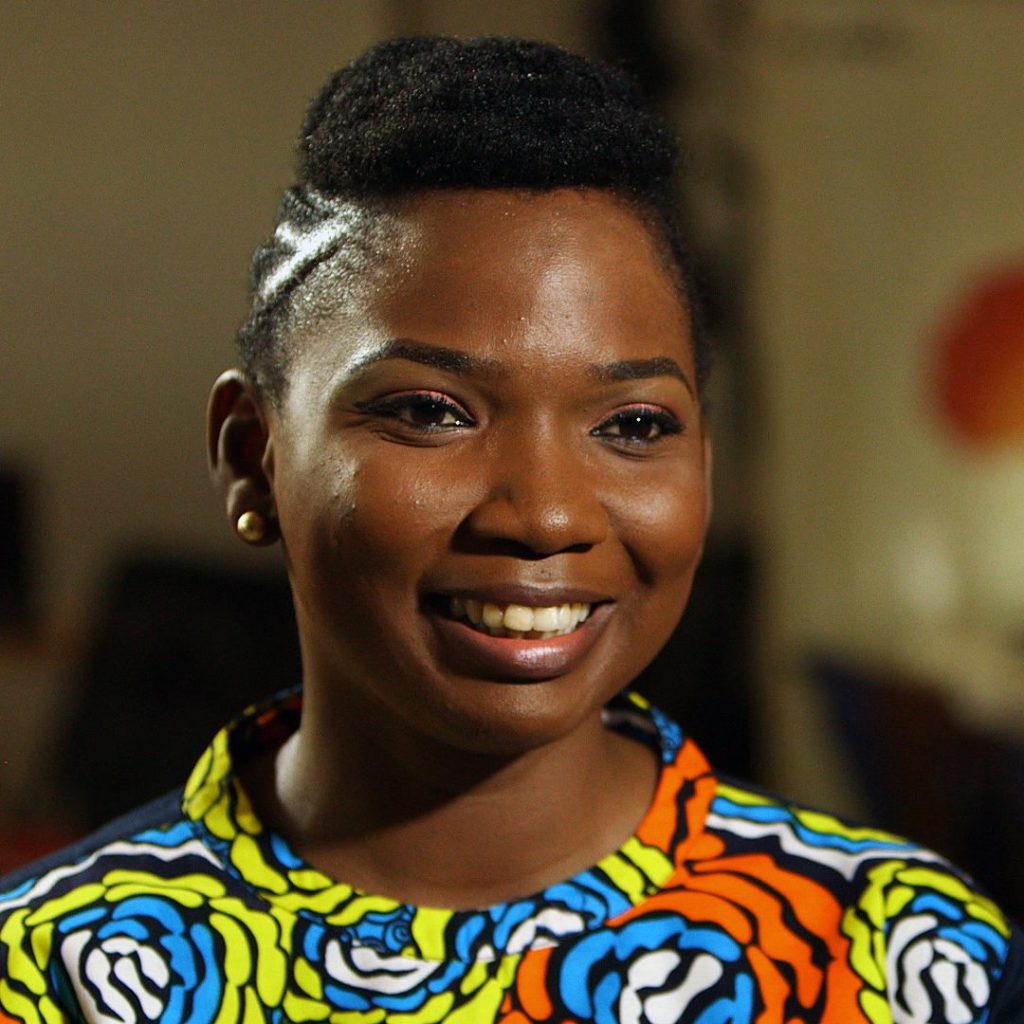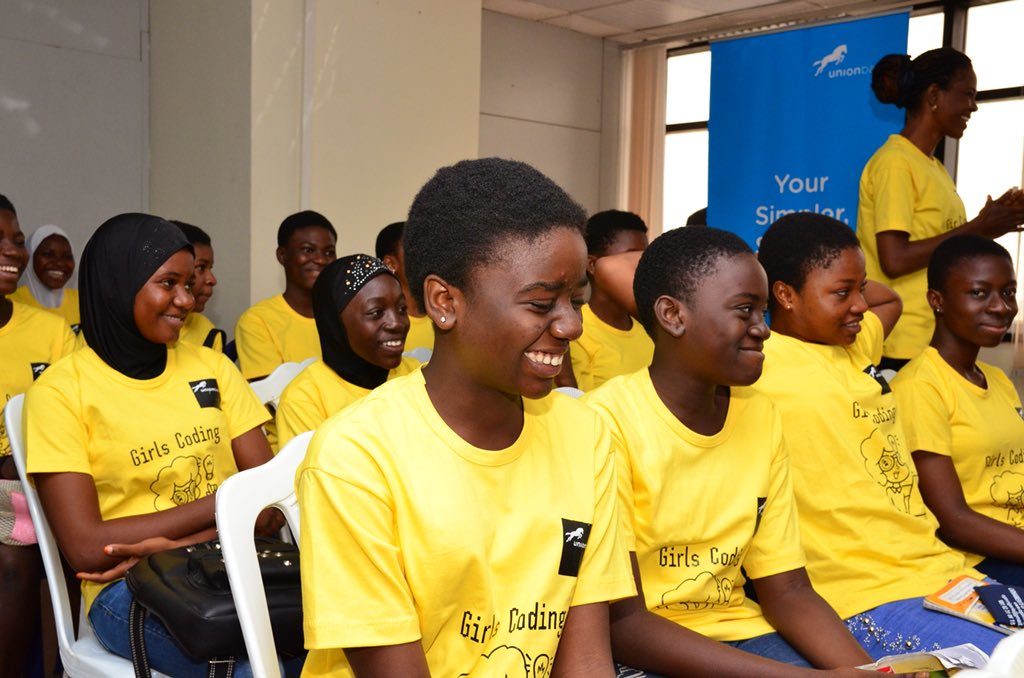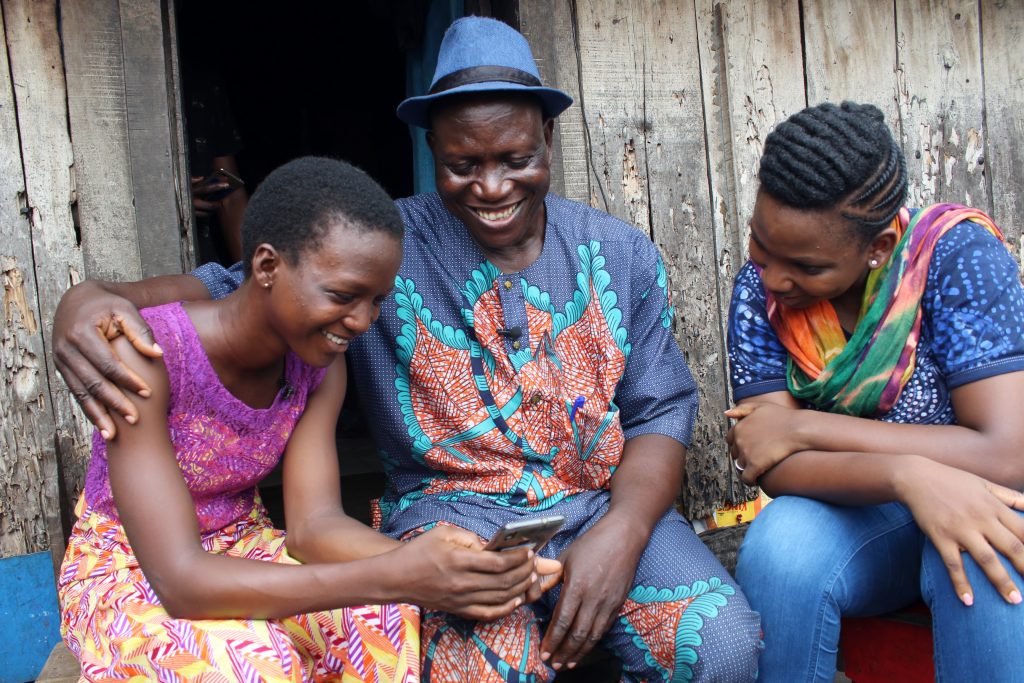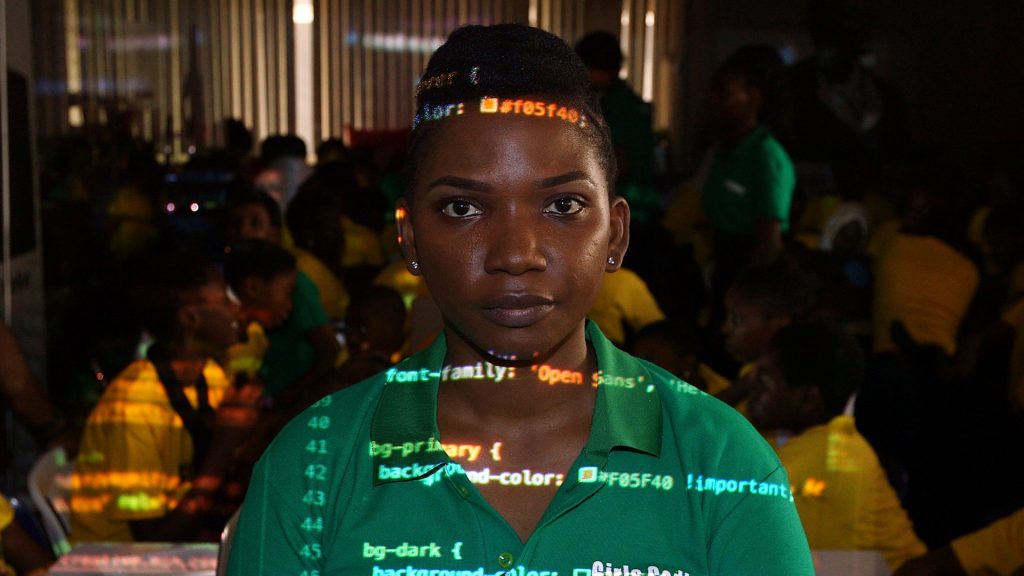
Ever since she received the CNN heroes Award in 2018 Abisoye Ajayi has been abundantly praised in the Nigerian and international press for her commitment to empower underprivileged girls through computer coding. The Nigerian young lady has not only fought against her own odds but in only a few years she unleashed the potential of hundreds of young girls from rough upbringing to become forward-thinking agents of change. Let me introduce you to a social entrepreneur who is shifting the lines for girls’ empowerment in STEM (Science Technology, Engineering and Mathematics)!
Education comes in different forms

Seeing her composed and assured demeanor, one would think that Abisoye’s journey was an easy one. However this was not the case… Losing her mother at the age of 4 years old, Abisoye was raised by her father. After his remarriage, her relationship with her dad became so strained involving repetitive beatings that she fled from the family home at the age of 15. She then started a life of wandering, doing small jobs to make a living, jumping from relatives to friends’ homes fearing that her dad would find her and force her back home. To add to her confusion, the young lady back then seriously struggled to get a university admission. Over 4 years, Abisoye kept traveling by road and writing admission exams through numerous states in Nigeria, in the pursuit to landing a university admission.
Indeed, every year around 20, 000 young graduates from secondary schools are eligible to college for only 5000 spots available in that university. At that time, Abisoye not only felt helpless but she had the feeling that she would not amount to anything life without a proper university degree. And seeing former classmates or peers progressing in their academic lives clearly reminded her how stagnant and purposeless her own life was. To keep herself busy, she decided to join a basic course at the NIIT (Nigerian Institute of Information Technology) on box office, word, Microsoft access and the likes. Even though she had no laptop (basic requirements to attend the class) she was so keen to learn that she asked for special permission to have access to the computer classroom to get the chance to practice what she was learning in class. Honing on her computer skills daily, she soon became better than her regular class peers. For the first time in her life,she realized that she could have a life of her own.
Sensing her appetite for computer science, a friend of her elder brother gets her an internship in a local IT audit firm. She didn’t know it at the time, but this internship would be an eye opener. Encouraged, by her mentors she expanded her skills in computer programming and broadened her horizons. Moreover, she realized IT’s seemingly magical ability to solve a wide range of real life challenges, for instance helping companies recovering missing funds through fraud detecting tools. At the IT Company, she also observed that women were unfortunately the minority, a ratio of 2 women for 38 men.
Those seven and half years spent in the company were crucial in her journey. After a couple of years, she finally got a university admission (for a major in computer science and accountancy). Still, Abisoye opted for attending part time classes, aware of the invaluable opportunity that she had to have hands on experience in the industry. She did not want to be a full time student for 4 years, unlearn the skills she had gain in the workplace, to finally become like any regular student (full of theory and most of the time disconnect from the professional world and its pragmatism). Her regular weekly schedule was a Monday to Friday work at the IT audit firm, Saturday and Sunday school days at university and on top it off she was running a side business selling clothes.
The way to your purpose is not always a linear path …

Being a part time student and a young professional, the young lady noticed how regular students around her were oblivious to the potential of computers. In fact, most young people would use computers to play games and watch movies. Struck by this situation Abisoye prepared and passed a questionnaire in which she inquired about her peers knowledge and interest in IT. The results of the survey were equivocal: the students needed to be trained.
With a couple of friends, she organized a large conference funded from her own pockets and as well as borrowings, during which 2000 students were taught the basics and opportunities lying in ICT. It was a huge success, so much so that she organized a second rendition the following year. And this time she even landed a six digit funding from a local bank. Surprisingly, deep inside, Ajayi felt dissatisfied, and she didn’t not understand why, she has just been promoted as an associate consultant at her IT audit firm , so career, financially and socially-wise she was doing quite well, however, a sense of unfinished business lingered… For her break, she decided to travel to the US in order to attend a relative’s wedding, during her stay in the country of Uncle Sam, she takes part in a conference on women and their role ICT. Connecting the dots, she came to the realization that there was a serious gender gap in computer science (as she could observe in her daily professional life). She deeply felt that something had to be done with women back home in Nigeria, especially with young girls, who just like her in her early days failed to have a strong support system and just could not afford any paid training at all.
Empowering girls as ambassadors for social change

In 2015, Abisoye Ajayi founded Pearls Africa (a non-profit organization) and organized her first free training programmes. Once again, the road was not seamless … She initially planned to train girls in a Nigerian public school, but was confronted by lengthy administrative procedure to approve her programme, so she decided to bring her support to the next underserved community, namely the girls of Nigeria’s largest floating slum, also known as Makoko. Once again, she used her own funds and family’s borrowings, learnt on her feet how to forge partnerships and rally friends and acquaintances for volunteer work. She also had to pick up how to navigate through the complex dynamics of a slum which is a town of its own in Lagos. What was initially a once in a week after school program has grown to be an incredible springboard, which trained around 400 young girls from slums, correctional centers, transit homes and IDP (internally Displaced People) camps in Nigeria. Girls aged between 10 to 17 years old were trained in computer programming, HTML (Hypertext markup language), CSS (Cascading Style Sheets), Python, Java, JavaScript and Materialize. Moreover, a mentoring programme has been developed to instill in those underprivileged girls a sound work ethic and the relevant social skills in order to enable them to thrive in the corporate or business world out there.
Abisoye is not only teaching them technology for the sake of it but she wants the girls to think for themselves and use technology to solve problems in their direct environment. To name a few, the girls from Makoko were able to successfully develop applications such as Makoko Fresh, an app which enables fishermen from the slums to sell their products directly to the consumers, and while doing so are avoiding the interference of shady middlemen who so far would be making large profits on the back of already impoverished fishermen. In the same vein, some pupils came up with Brake the Blade, an awareness platform aiming at reporting cases of female genital mutilation (FGM) happening in different places.

Seeing girls who have never seen a computer in their lives to teach adults what they have learnt is amazing
Ajayi Abisoye is also an entrepreneur herself, as she owns a consulting firm (providing web development, social media, info graphics, and trainings for companies…), she is also a firm believer in economic independence and as such does not advocate for collecting money, instead she empowers girls to develop the skills that will help make money.
Through the mentorship program as mentioned above, our social entrepreneur also makes sure that her girls are exposed to new environments and allow themselves to dream bigger. For instance, partnerships were forged with companies such as Union Bank, Andela, Google, Microsoft, and IBM. Some of the girls have demonstrated so much potential that they were able to get scholarships or even move from public schools to private schools. She is convinced that girls regardless of their background can have a voice through technology. The recent media exposure has put the foundation on the map, bringing in new partnerships. Abisoye remains a strong advocate of entrepreneurship and economic advancement through computer programming.

The 34 yeald old Nigerian lady is committed to building up women who will change their generation, her next goals are to replicate her programme throughout Nigeria and at the scale of the African continent. She also plans to open a girl’s village to provide a conducive environment to further develop and inspire girls. As the journey of Abisoye shows, it is never too late to find your purpose!
Leave a Reply